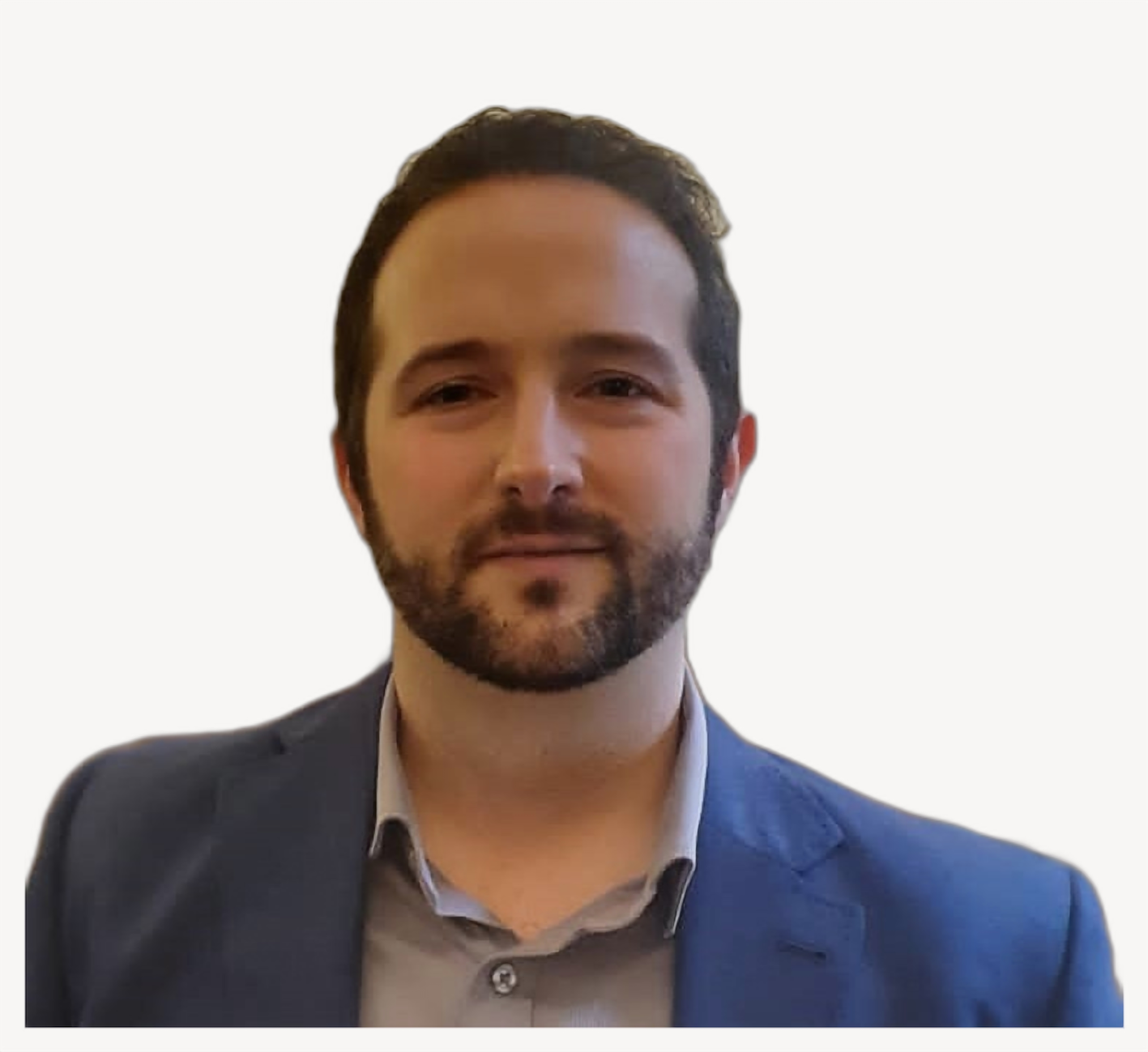
Mentor: Dr Matías J Alet, Argentyna
Osoba szkolona: Gonzalo Pérez Hornos, Urugwaj
Osoba szkolona: Diego Vela, Argentyna
Dr Matías J Alet jest członkiem Centro Integral de Neurología Vascular de Fleni w Buenos Aires w Argentynie idyrektorem Oddziału Leczenia Udarów Szpitala JM Ramos Mejía w Buenos Aires. Jest także członkiem zarządu Argentyńskiego Towarzystwa Neurologicznego oraz Światowa Organizacja Udaru Mózgu Mózgu i Ibero-Amerykańskiego Towarzystwa Chorób Mózgu. Jest członkiem Globalnego Komitetu Sterującego Angels. Ponadto jest profesorem pomocniczym na Wydziale Medycyny Uniwersytetu Buenos Airesa. Jest mentoremGonzalo Pérez Hornos, którego projekt koncentruje się na udar mózguu młodych pacjentów poprzez retrospektywne badanie bazy danych Hospital de Clínicas de Urugwaj. Zapewnia również Diego Vela poradę, której praca dotyczy utworzenia SRC w Szpitalu Prezese Derqui (Pilar, Argentyna), z możliwością korzystania ze wsparcia telemedycznego z głównego szpitala. Ta instytucja nie posiada usług neurologia i neurolog.
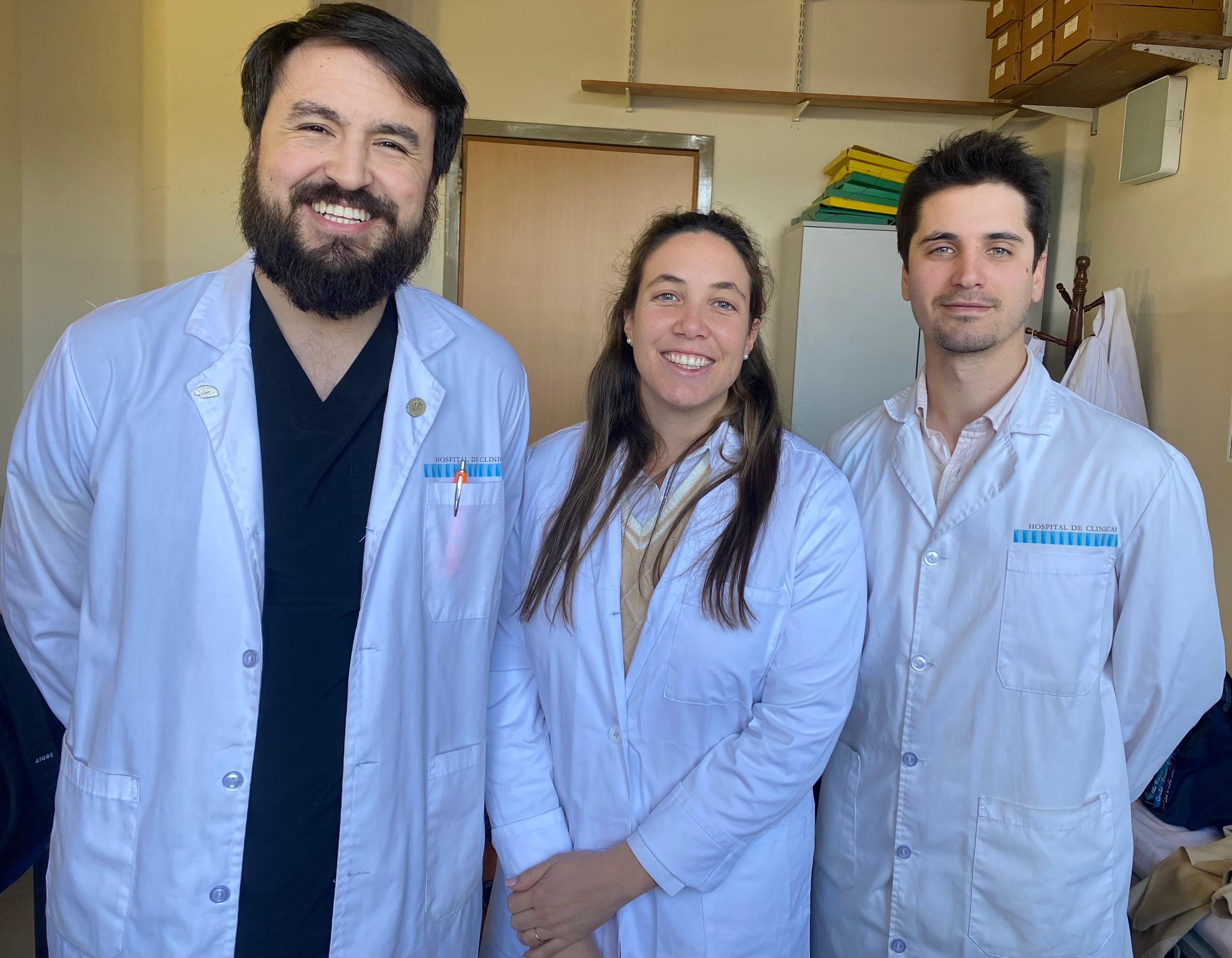
Pytania i odpowiedzi Gonzalo Pérez Hornos
Jaka jest Twoja obecna rola?
Jestem starszym rezydentem neurologia w Montevideo w Urugwaju. Biorę udział w Programie mentoringu Angels w imieniu Urugwaju i wraz z dwoma moimi rezydentami w neurologia, dr Maríą Paz Rodríguez i dr Ramiro Rodríguez.
Co motywowało Cię do ubiegania się o program mentoringu?
Motywacja wynika z dążenia do realizacji krajowych i regionalnych projektów badawczych, aby poznać nasze dane i dostosować naszą pracę do lokalnej rzeczywistości. Zamiast początkującego młodego badacza, uzyskanie dostępu do doświadczonego mentora ma wielką wartość i jest pomocne w realizacji pomysłów projektowych.
Jaki będzie idealny wpływ Twojego projektu?
Nasz konkretny projekt ma na celu opisanie młodej populacji z udar mózgu w naszym kraju i, między innymi, określenie, w jakim wieku przyczyny udar mózgu, bardzo różnią się u młodych, zaczynają przypominać te z starszych populacji. Wartość kliniczna tego pomysłu polega na tym, aby móc opracować zalecenia dotyczące tego, kiedy podejrzewać nietypowe przyczyny udar mózgu i kiedy rozszerzyć algorytmy wyszukiwania etiologicznego, kiedy dotrzemy do kategorii „nieokreślonej” przyczyny poprzez klasyczne badania ocena. Przyniosłoby to korzyści pacjentom i zoptymalizowało wykorzystanie zasobów.
Jakich konkretnych korzyści spodziewasz się od relacji z mentorem?
Główną korzyścią jest doświadczenie i wiedza uzyskana dzięki znajomości skutecznych sposobów opracowywania projektów badawczych. Kolejną korzyścią jest uczenie się z perspektywy i zdolności analitycznych, które doświadczony mentor przedstawia, gdy podchodzi do pomysłu podczas procesu wyrażania koncepcji. Możliwość publikowania wyników pracy, a tym samym ich komunikowania w celu porównania z wynikami innych krajów w regionie, a z kolei stworzenia sieci pracy dla wspólnych projektów o tym samym temacie, który poszerza zakres zrozumienia tematu. Autorzy z większym doświadczeniem, tacy jak nasi mentorzy, mają kluczowe znaczenie dla opracowania i przedstawienia tych wspólnych projektów, wykazując się na podstawie ich doświadczenia najbardziej wydajnym i praktycznym sposobem oraz wizualizacji globalnego schematu.
Jaka była Twoja pierwsza prezentacja z mentorem?
Pierwsza prezentacja była bardzo serdeczna i przyjemna. Znaleźliśmy mentora, który dąży do uzupełnienia i kierowania się bez narzucania, rozwijania i ulepszania naszych pomysłów poprzez aktywne słuchanie i formułowanie zaleceń, aby zapewnić ich realizację w najbardziej efektywny sposób i z najwyższym rygorem naukowym. Dzięki temu leczenie można uzyskać jeszcze lepszy gust. Naszym mentorem jest dr Matías Alet, który jest regionalnym ekspertem w dziedzinie udar mózgu i z którym w przeszłości udostępnialiśmy miłe wcześniejsze wydarzenia zarówno podczas kongresów, jak i w artykułach i projektach naukowych.
Czy w przeszłości miałeś innych mentorów?
Chociaż nasz projekt jest oparty na grupie, odpowiadając szczególnie na moje pytania, nie miałem specjalistów, których rozważę jako mentorów w mojej krótkiej i niedawno rozpoczętej karierze. Nauczyłem się od wielu nauczycieli, współpracowników, pacjentów, badaczy oraz starszych i nowoczesnych autorów, których nie znam osobiście. W szczególności w trakcie pobytu znalazłem wiele przypadków uczenia się w kontaktach ze współpracownikami. W życiu osobistym uważam, że bardzo ważne są dla mnie porady dotyczące wzbogacania rozwoju kulturowego i rodzinnego oraz ustalania priorytetów dla zrównoważonego życia. Jest to ważne w krajach Ameryki Łacińskiej, w których prowadzenie badań klinicznych bez posiadania chronionego czasu jest powszechne i w których rozwój zawodowy kończy się wyczerpującym wysiłkiem na szkodę wzrostu w innych aspektach życia.
Czy kiedykolwiek miał/a Pan/Pani możliwość bycia mentorem dla kogoś?
Nie miałam takiej możliwości w akademii. Myślę, że mam w życiu osobistym i uważam, że to bardzo duża odpowiedzialność i bardzo cenne doświadczenie.
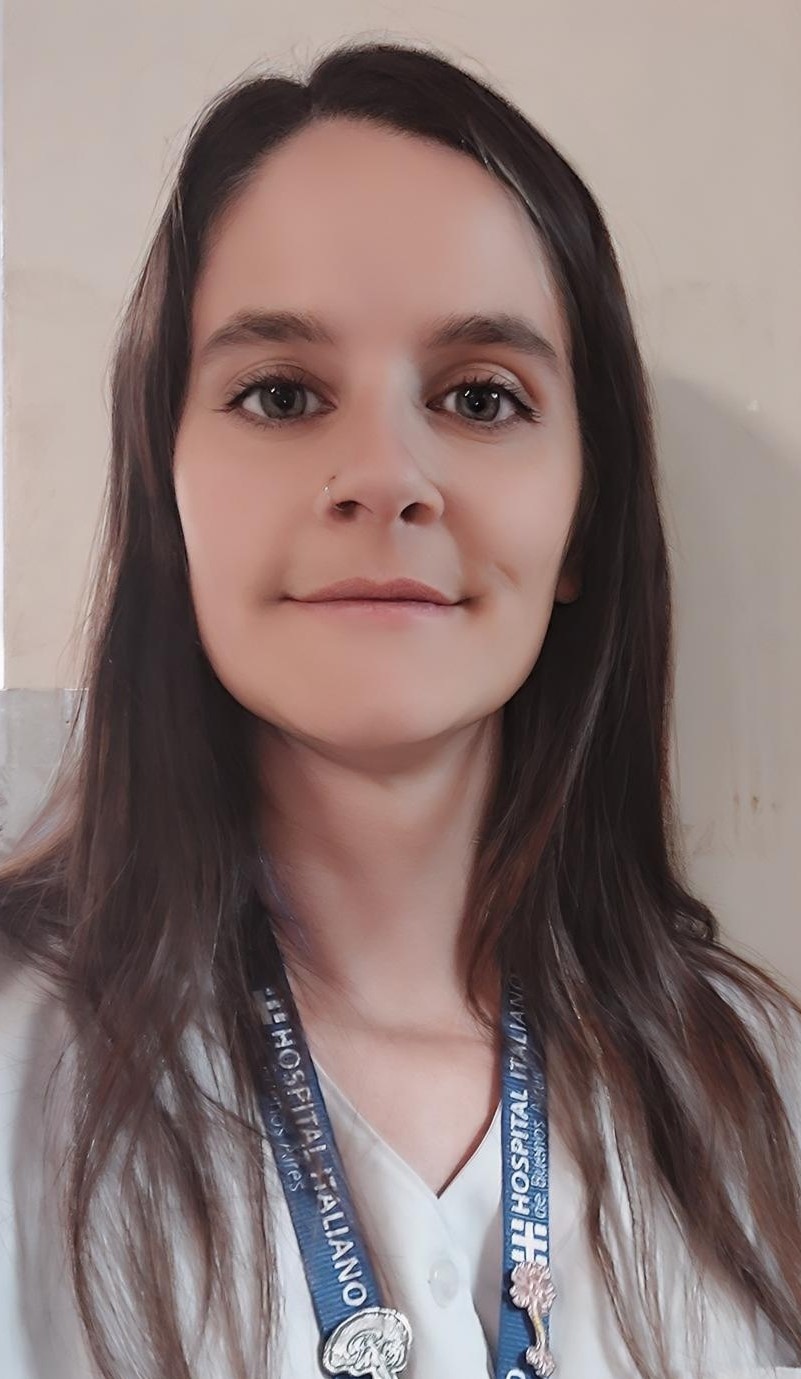
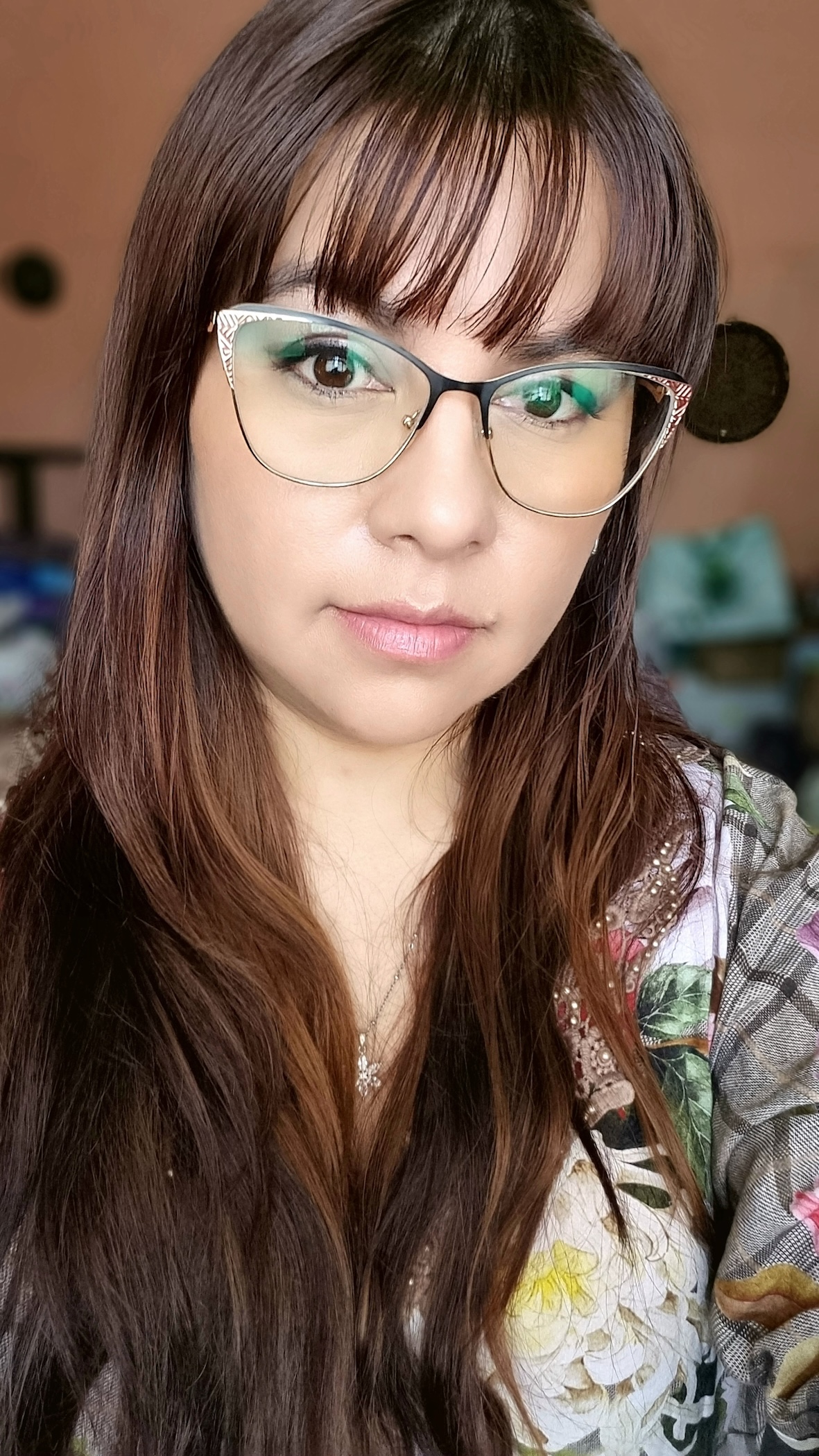
Mentor: Lic. Enf.Nadia Mariela Tessore, Argentyna
Osoba szkolona: Jimena Haidar, Argentyna
Mentee: Adrieth Eliana Angulo Torrez, Argentyna.
Lic. dr hab. n. med. Nadia Mariela Tessore jest profesorem pielęgniarstwo. Na Uniwersytecie Favaloro jest nauczycielką kierownika w sekcji Intensywnej Opieki Neurologicznej szpitala Italiano w Buenos Aires i wykładowcą studiów licencjackich w zakresie pielęgniarstwa i specjalizacji intensywnej opieki. Jest również dyrektorem i profesorem kursu intensywnej opieki pielęgniarskiej w Instytucie Uniwersyteckim Szpitala Włoskiego. Poinstruuje Jimena Haidar w zakresie projektu pielęgniarstwo w zakresie profilaktyki udar w mieście Bahía Blanca, Argentyna i Adrieth Eliana Angulo Torrez – proponowania strategii zarządzania i pielęgniarstwo rehabilitacja afazja.
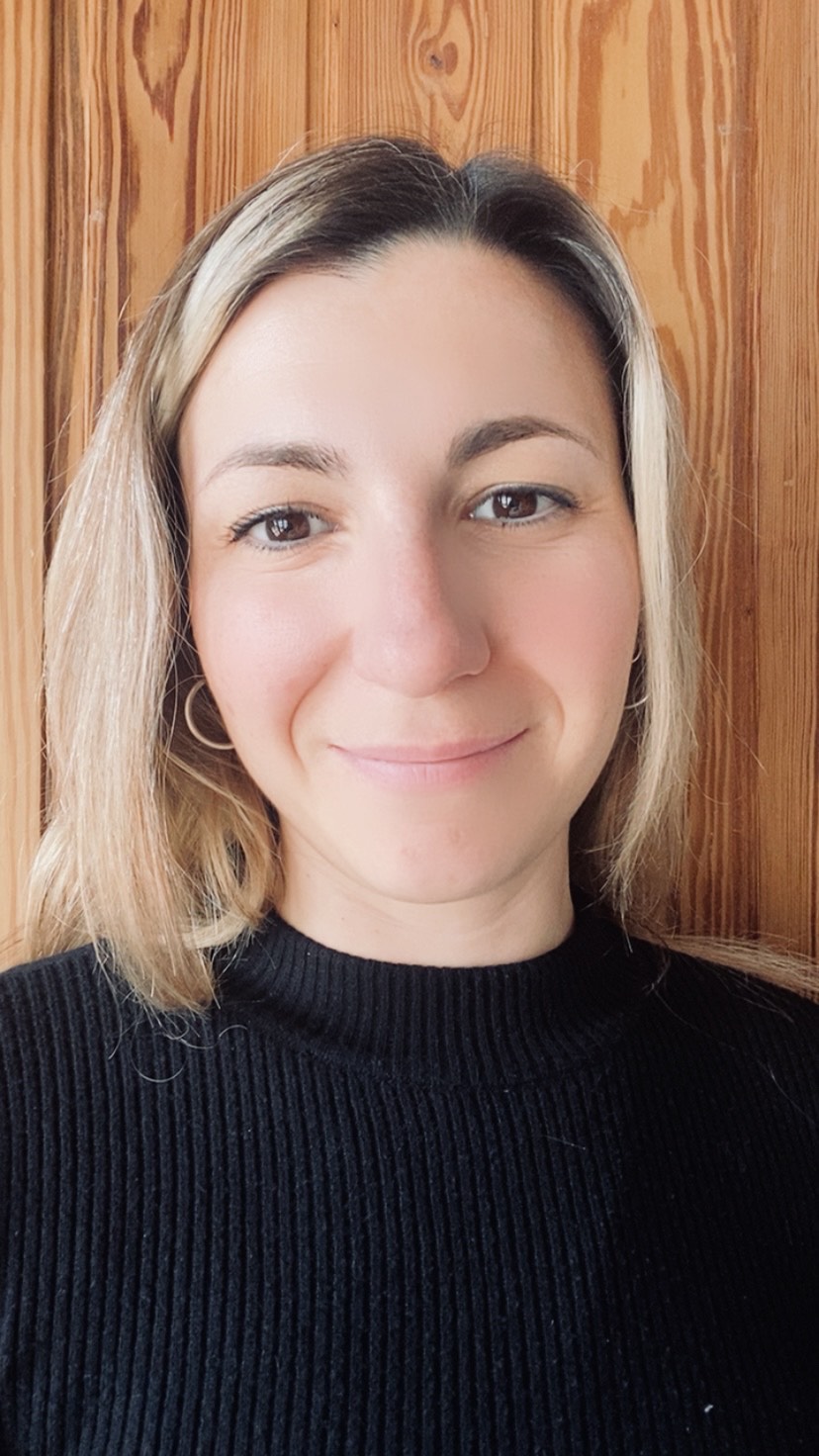
Pytania i odpowiedzi z Jimena Haidar
Jaka jest Twoja obecna rola?
Jestem wyspecjalizowaną pielęgniarka w zakresie intensywnej opieki medycznej w szpitalu Italiano of Buenos Aires i kończę specjalizację w ekonomice i zarządzaniu usługami zdrowotnymi. Obecnie pracuję na oddziale intensywnej opieki dla dorosłych i w obszarze edukacji pielęgniarskiej w szpitalu miejskim szpitala Agudos Dr Leónidas Lucero w Bahíi Blanca. Ponadto kieruję oddziałem pielęgniarstwa neurologicznego Critical Nursing na Latin American Brain Injury Consortium (LABIC) i jestem nauczycielem w kilku instytucjach opieki zdrowotnej (między innymi Szpitalny Uniwersytet włoski, Uniwersytet Favaloro, SATI).
Co motywowało Cię do ubiegania się o program mentoringu?
Możliwość przeprowadzenia projektu, który wpływa na społeczność Bahíi Blanca i regionu. Chcę przyczynić się do poprawy leczenia udar i zapobiegania mu z perspektywy pielęgniarstwo i wiedziałem, że posiadanie doświadczonego mentora w tym obszarze będzie kluczem do osiągnięcia moich celów.
Jaki będzie idealny wpływ Twojego projektu?
Znaczna poprawa wczesnego wykrywania i szybkiego leczenie udar mózgu w moim regionie. Aspiruję pacjentów z udar do szybkiej i odpowiedniej uwagi, co zwiększy ich szanse na powrót do zdrowia i zmniejszy śmiertelność i długotrwałe następstwa. Ponadto mam nadzieję, że edukacja i świadomość w społeczności doprowadzą do większej świadomości na temat zapobiegania udar.
Jakich konkretnych korzyści spodziewasz się od relacji z mentorem?
Mam nadzieję na uzyskanie szerszej wizji i skutecznych strategii skutecznego wdrażania mojego projektu, wykorzystując wiedzę i doświadczenie mojego mentora w dziedzinie udar mózgu. Ponadto szukam wskazówek, aby przezwyciężyć konkretne wyzwania, takie jak zarządzanie zasobami i mobilizacja społeczności i personelu medycznego, zapewniając, że mój projekt jest zrównoważony i powtarzalny w innych regionach.
Jaka była Twoja pierwsza prezentacja z mentorem?
Od wielu lat znam mojego mentora i miałam możliwość kilkukrotnej współpracy z nią. Naprawdę podziwiam jej talenty i doświadczenia w tej dziedzinie. Cieszę się, że jest moim nauczycielem.
Czy w przeszłości miałeś innych mentorów?
Tak, w trakcie mojej kariery miałem szczęście, że mam kilku mentorów i wzorów do naśladowania. Wśród nich podkreślam nauczycieli i kilku kolegów, którzy kierowali mną podczas pobytu w intensywnej opiece medycznej, tych, których spotkałem za pośrednictwem LABIC i w moim miejscu pracy. Każdy z nich nauczył mnie, jak ważne jest poświęcenie, stałe aktualizowanie wiedzy i pracy zespołowej, wpływanie na mój rozwój zawodowy i moje podejście do edukacji pielęgniarstwo.
Czy kiedykolwiek miałaś okazję być mentorem dla kogoś i jeśli tak, jakie było to doświadczenie?
Tak, miałam możliwość mentoringu kilku studentów i współpracowników w zakresie intensywnej opieki neurologicznej i intensywnej. To doświadczenie było niezwykle satysfakcjonujące, ponieważ pozwala mi dzielić się wiedzą i przyczyniać się do rozwoju zawodowego innych. Ponadto bycie mentorem pomogło mi zastanowić się nad własnymi praktykami i być na bieżąco.
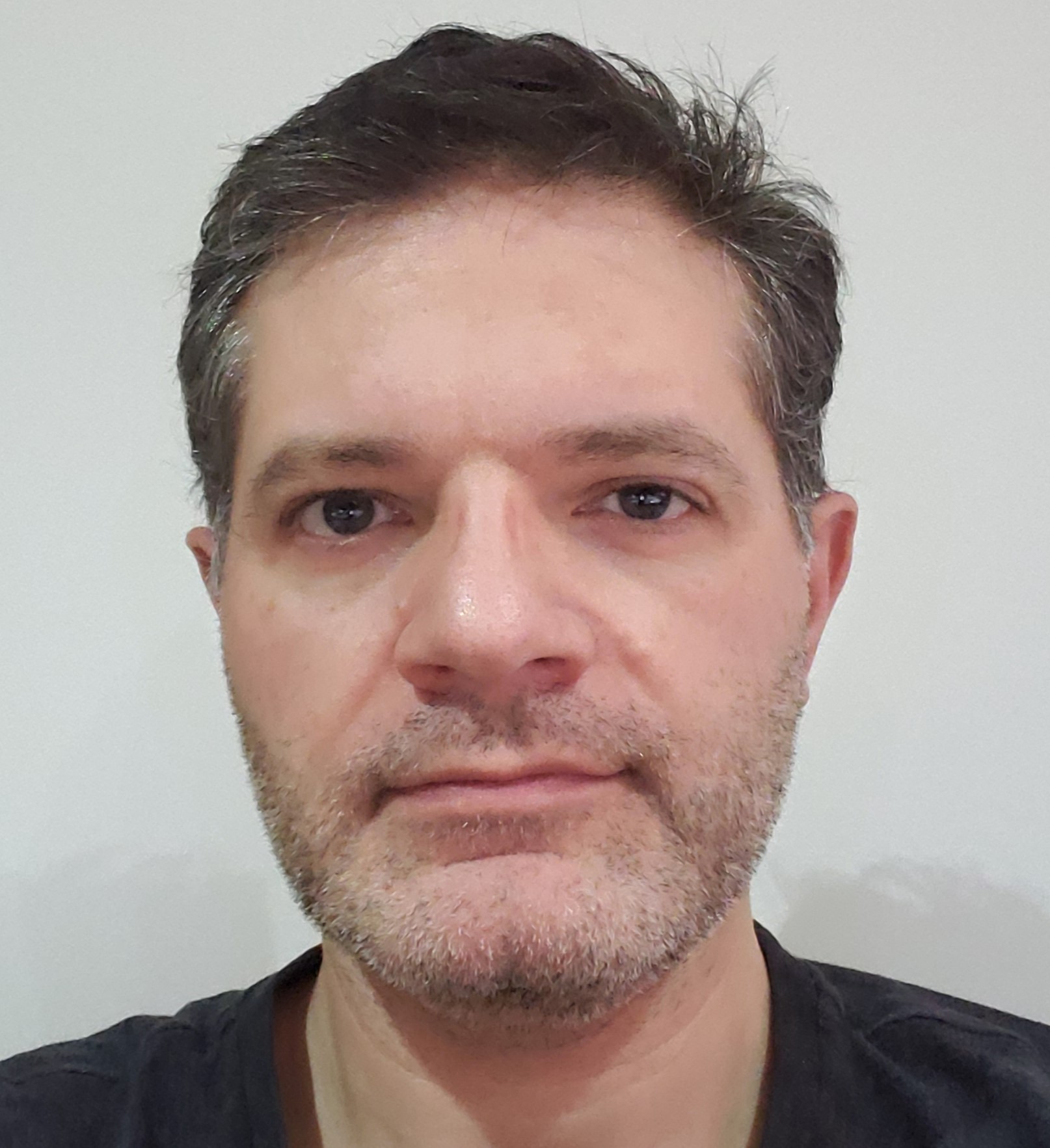
Mentor: Dr Pablo Felipe Amaya, Kolumbia
Osoba szkolona: Manuel Chasco, Argentyna
Osoba szkolona: Rolando Héctor Nervi, Argentyna
Dr Pablo Felipe Amaya, jest neurolog naczyniowym i dyrektorem programu udar Fundación Valle del Lili, Kolumbia.Jest także profesorem neurologii na Uniwersytecie Icesi w Kalii, Kolumbia, a także członkiem Grupy Roboczej ds. Neuronaczyniowych Kolumbii. Udzieli on Manuelowi Chasco wskazówek, którego projektem jest badanie wykonalności, projekt i wdrożenie projektu teleudarowego z siedzibą na oddziale leczenia udarów szpitala Pirovano w Buenos Aires w Argentynie. Jest także mentorem dla Héctor Nervi, którego praca koncentruje się na utworzeniu SRC w Regionalnym Szpitalu Río Gallegos w Argentynie.
Pytania i odpowiedzi zRolando Nervi
Jaka jest Twoja obecna rola?
Jestem podopiecznym w tym projekcie, aby stworzyć sieć opieki w Rio Gallegos. Z mojego stanowiska jako lokalnego koordynatora regionalnego szpitala Rio Gallegos opracowuję strategie (protokoły, schematy przebiegu badań) dostosowane do istniejących zasobów w celu poprawy pomocy i opieki nad pacjentami z udar.
Co motywowało Cię do ubiegania się o program mentoringu?
Brak formalnych lub instytucjonalnych protokołów dotyczących opieki nad pacjentami z udar, których priorytetem nie były sytuacje nagłe, oraz brak wykorzystania skuteczności terapeutycznej obecnie standaryzowanych metod leczenia. Fakt, że pomimo braku stopnia złożoności w zakresie istniejących zasobów zawodowych (lekarzy specjalistów w dziedzinie obrazowania diagnostycznego) ma na celu uproszczenie stosowania protokołów dostosowanych do lokalnego poziomu.
Jaki będzie idealny wpływ Twojego projektu?
Na tym pierwszym etapie rezultatem lub wpływem projektu będzie poprawa identyfikacji i priorytetyzacji objawów oraz zastosowanie procedur diagnostycznych i terapeutycznych, które spowodują, że większa liczba pacjentów otrzyma możliwość właściwego leczenie.
Jakich konkretnych korzyści oczekujesz od relacji mentorskiej?
W szczególności nadzór i zalecenia wynikające z ich doświadczenia w stosowaniu protokołów, które są niezbędne, a które mogą być niezbędne do prawidłowego ich wdrożenia.
Jaka była Twoja pierwsza prezentacja z mentorem?
Rozmowa wideo odbyła się na platformie aplikacji Angels Events. Uderzył mnie spokojność i jasność, z którą przekazał swoją wiedzę i opinie na podstawie swoich doświadczeń.
Czy w przeszłości miałeś innych mentorów?
Tak. Profesorzy uniwersytecki, instruktorzy podczas mojej rezydentury i współpracownicy medyczni, z którymi współdzielimy aktywności. Wpłynęli na mnie przez ich przykład.
Czy kiedykolwiek miał/a Pan/Pani możliwość mentorowania kogoś?
Byłem nauczycielem na poziomie szkoły średniej i instruktorem w rezydencjach medycznych i w standaryzowanych kursach, takich jak ACLS i ATLS. Było to zupełnie pozytywne doświadczenie, które sprawiło, że zmusiło mnie do aktualizacji i utrzymania zainteresowania aktywnością.
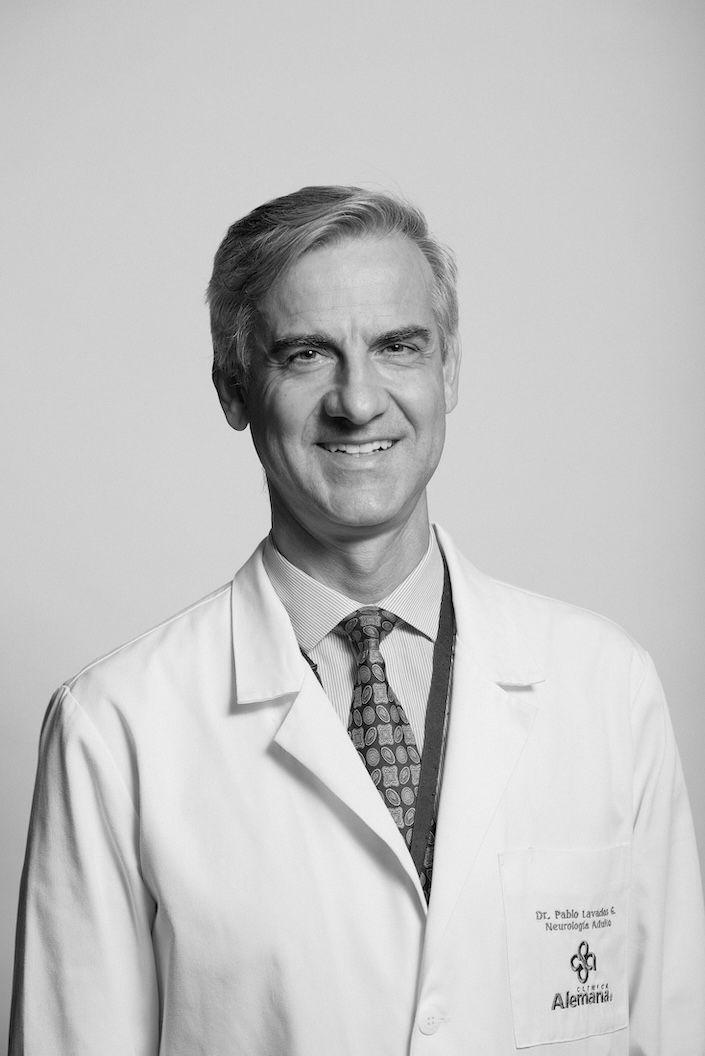
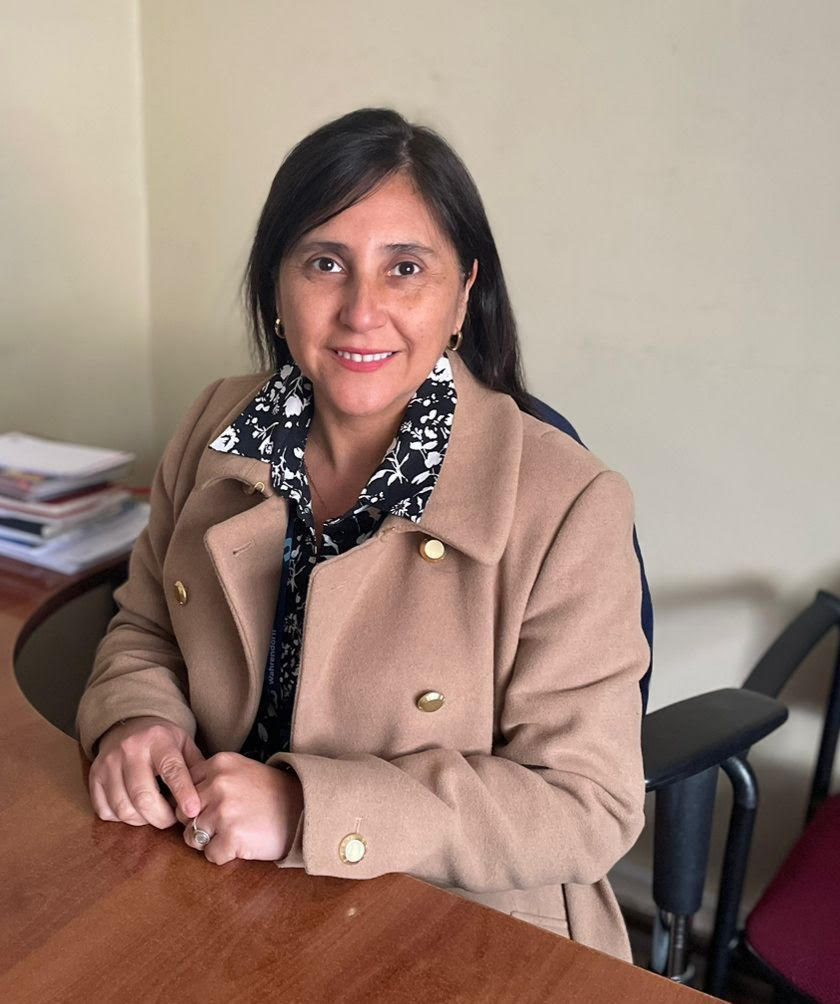
Mentor: Dr Pablo M Lavados, Chile
Osoba szkolona: Ronald Soto Arancibia, Chile
Osoba szkolona: Mackarena Zapata, Chile
Dr Pablo M Lavados jest neurolog naczyniowym, który jest Kierownikiem Zakładu Badań Naukowych i Badań Klinicznych Clínica Alemana w Santiago w Chile. Jest także profesorem neurologii na Uniwersytecie del Desarrollo, Chile, prezesem chilijskiego Stowarzyszenia Chorób Mózgu i wiceprezesem Iberyjno-Amerycznego Towarzystwa Chorób Mózgu. Jest mentorem dla Ronalda Soto Arancibia, którego projekt dotyczy utworzenia zintegrowanej sieci leczenia udar w ramach organizacji Health Care Service Metropolitano Occidente (SSMOc) w Santiago, Chile i Mackarena Zapata, która prowadzi badania nad pacjentami z udar w Chile poprzez analizę wskaźników DRG dotyczących ochrony zdrowia.
Pytania i odpowiedzi w Rolando Soto
Jaka jest Twoja obecna rola?
Jestem koordynatorem usług neurologii w szpitalu San Juan de Dios w Provincia de Santiago w Chile oraz neurolog ratunkowy ratunkowego w Klinice Davila w Santiago.
Co motywowało Cię do ubiegania się o program mentoringu?
Odpowiedzialność za zmianę wyników opieki nad pacjent z udarem w Ośrodku Zdrowia (trzeciej największej w Chile), który służy populacji szczególnie wrażliwej.
Jaki będzie idealny wpływ Twojego projektu?
Choć opieka na trzech poziomach złożoności jest możliwa, stają one przed istotnymi wyzwaniami operacyjnymi i istnieje potrzeba zorganizowania idealnie brzmiących sieci opieki dla pacjentów z udar.
Jakich konkretnych korzyści oczekujesz od relacji mentorskiej?
Doświadczenie i wskazówki mentora są niezbędne, aby kontynuować pomimo pewnych frustracji. Jesteśmy odpowiedzialni za terminowe doprowadzenie projektu do pomyślnego zakończenia projektu, ponieważ „nie możemy zawieść dr Lavados”.
Jaka była Twoja pierwsza prezentacja z mentorem?
Znałam go już, ponieważ jest uznanym liderem opinii w dziedzinie neurologii naczyniowej.
W czasie, gdy udar mózgu jest wysoki w programie w wielu krajach Ameryki Południowej, program mentoringu ma na celu umożliwienie osobom, które dążą do wygenerowania znaczącej zmiany w wynikach pacjent z udarem. Angels w Ameryce Południowej uważa, że program zapewnia wspaniałe możliwości, nie tylko dla specjalistów, którzy rozwijają się jako mentorzy i mentorzy, ale również dla społeczności, w których się rozwijają.


